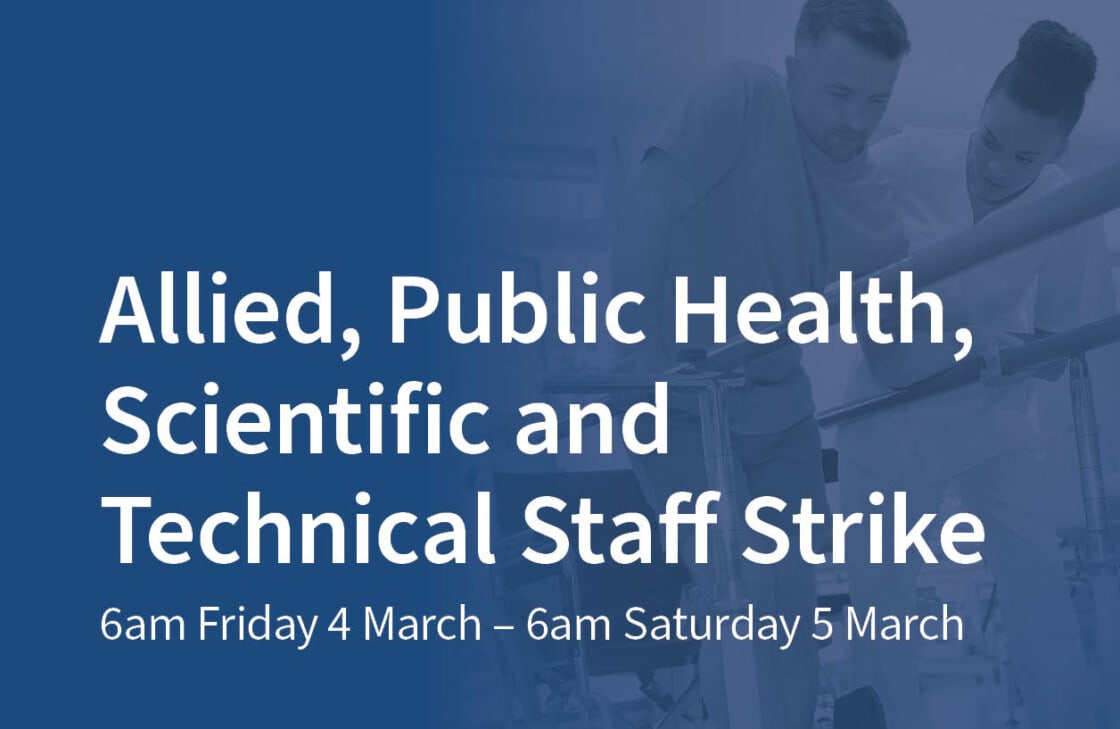THIS IS AN ARCHIVED PAGE. The advice and information contained in this page may not be current and it should only be used for historical reference purposes.

Expect delays and changes to DHB services during tomorrow’s planned strike by PSA members
Patients of Canterbury and West Coast DHBs can expect to see delays and changes to services during this week’s strike by Allied, Public Health, Scientific and Technical Staff who are covered by the PSA union bargaining.
The nationwide action involves a full withdrawal of labour for 24 hours from 6am on Friday 4th March to 6am on Saturday 5th March.
Across the Canterbury DHB, 39 professions and over 1500 staff will be affected. On the West Coast, 23 professions and more than 120 staff are affected. Our therapeutic, rehabilitation, laboratory and diagnostic services as well as other clinical support services and Hauora Māori will be severely impacted during the time of the strike.
If this industrial action goes ahead as planned, it will cause significant disruption to all of our health services in Canterbury, similar to the disruptions we experienced during the last nurses’ strike. This will also impact some services in the days following the strike.
Canterbury and West Coast DHBs Chief Executive Peter Bramley says services such as the Emergency Department at Christchurch Hospital are likely to be impacted by significant delays and elective surgeries have been postponed.
“The strike will affect the time it takes for patients to be seen, assessed and discharged. In particular some discharges back to community where physio, social work, pharmacists, occupational therapy and dietitians are normally involved.
“Where it is appropriate and safe to do so we are discharging patients home ahead of the strike to reduce the pressure on those staff who are working,”.
Many routine outpatient clinics involving allied health staff, community clinics and elective procedures will be deferred. People will be re-booked to the next available time. If they are not contacted, they can expect their procedure or appointment to go ahead as normal. Hospital laboratory staff will only be processing urgent inpatient blood tests.
The strike won’t affect COVID-19 testing services and it is important that people who need to get tested on the day of the strike make sure they still do. Vaccination sites will also still be operating as usual.
Some of the professions affected in Canterbury and the West Coast are:
- Anaesthetic Technicians
- Audiologists
- Biomedical Technicians
- Dental Therapists
- Dietitians
- Hauora Māori
- Health Promotion Officers
- Kaiāwhina (Allied Health Assistants and support workers)
- Laboratory staff
- Medical Imaging Technologists
- Newborn Hearing Screeners
- Occupational Therapists
- Pharmacists and Technicians
- Phlebotomists
- Physiotherapists
- Play Specialists
- Podiatrists
- Psychologists
- Social Workers
- and Speech-language Therapists
“We respect the right of staff to take industrial action and acknowledge the important role that health workers play in delivering high quality care,” says Peter.
“Our priority, as always, is the safety of patients and we want to reassure our community that you will still receive emergency and urgent care during the strike.”
ENDS

